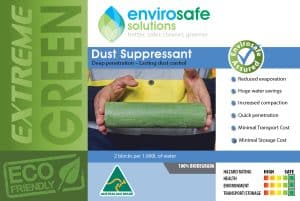Envirosafe Solutions takes a brief look at the plight of the endangered Sumatran Tiger.
 For the past thirty years, Australia has had an ongoing love affair with the small island of Bali. It is now a major tourist destination for vacationers wishing to experience a brief glimpse of Asia and all it has to offer, whilst maintaining a steady connection with western style resort level accommodation and services.
For the past thirty years, Australia has had an ongoing love affair with the small island of Bali. It is now a major tourist destination for vacationers wishing to experience a brief glimpse of Asia and all it has to offer, whilst maintaining a steady connection with western style resort level accommodation and services.
But how many Australians actually move beyond this Hindu-based Island and venture further a field into the island regions of Sumatra, Java and the smattering of smaller islands than comprise this highly populated country? How many are aware that just a plane flight away, the great Sumatran Tiger is under threat of extinction?
Many indeed would be unaware of the plight of the Sumatran Tiger in the region of Bukit Tigapuluh. Bukit Tigapuluh is one of the last remaining remnants of lush rainforest that earned Indonesia the nickname “Jewel of the Equator” over seventy years ago. Most recently, World Wildlife Fund camera traps “recorded an astounding 12 tigers in just two months in this area, including two mothers with cubs and three young tiger siblings playfully chasing a leaf.”[1]
The sense of innocence this image conveys is palpable. Cubs and mothers in the wild, snatching and clawing at jungle leaves and fraying vines conjure an idyllic existence befitting the pride of the forest. And yet, there are only some 400 Sumatran Tigers remaining in the wild, along with another five surviving subspecies (Bengal, Amur, Malayan, Indochinese and Chinese.) Today, the total number of all these tigers is estimated to be as few as 3,200 which is a far cry from the 100,000 in existence around a century ago. WWF is working to build the political, financial and public support to double the number of tigers in the wild by 2022.
Around 10% – or approximately 30 – of the world’s remaining Sumatran Tigers inhabit the forest of Bukit Tigapuluh (or Thirty Hills, as it translates to in English.) Half of Bukit Tigapuluh is national park, but the flatland forest areas favoured by The Sumatran Tiger, the Orangutan and endangered elephants – those low lying areas outside of National Park control – “are under immediate threat from large scale commercial logging from the pulp and paper industry.”[2]
Envirosafe Solutions has a “think before you print” workplace approach, and prides itself on the development and maintenance of workplace practices that translate to recycling, sustainability and low paper usage. Envirosafe Solutions understands that we all have a choice, and when we purchase the typing paper that sits on our office desks and home work stations, we can check to see that it is sourced from recycled paper or from plantation timber rather than old growth forest areas.
The Sumatran Tiger faces extinction. Our work and home habits and practices can have a direct and indirect impact on the sustainability of threatened species in Australia and Indonesia and beyond.
An ethical approach to the environment is possible with Envirosafe Solutions.
Phone them for eco-friendly products on 1300 88 90 70.
[1] http://www.worldwildlife.org/who/media/press/2011/WWFPresitem21209.html?intcmp=HPPolaroid-CaughtonCamera
[2] Last Chance to Save Bukit Tigapuluh. Sumatran Tigers, elephants orang-utans and indigenous tribes face extinction along with forest. KKI WARSI, Frankfurt Zoological Society, Eyes on the Forest, WWF-Indonesia, 2010.



















